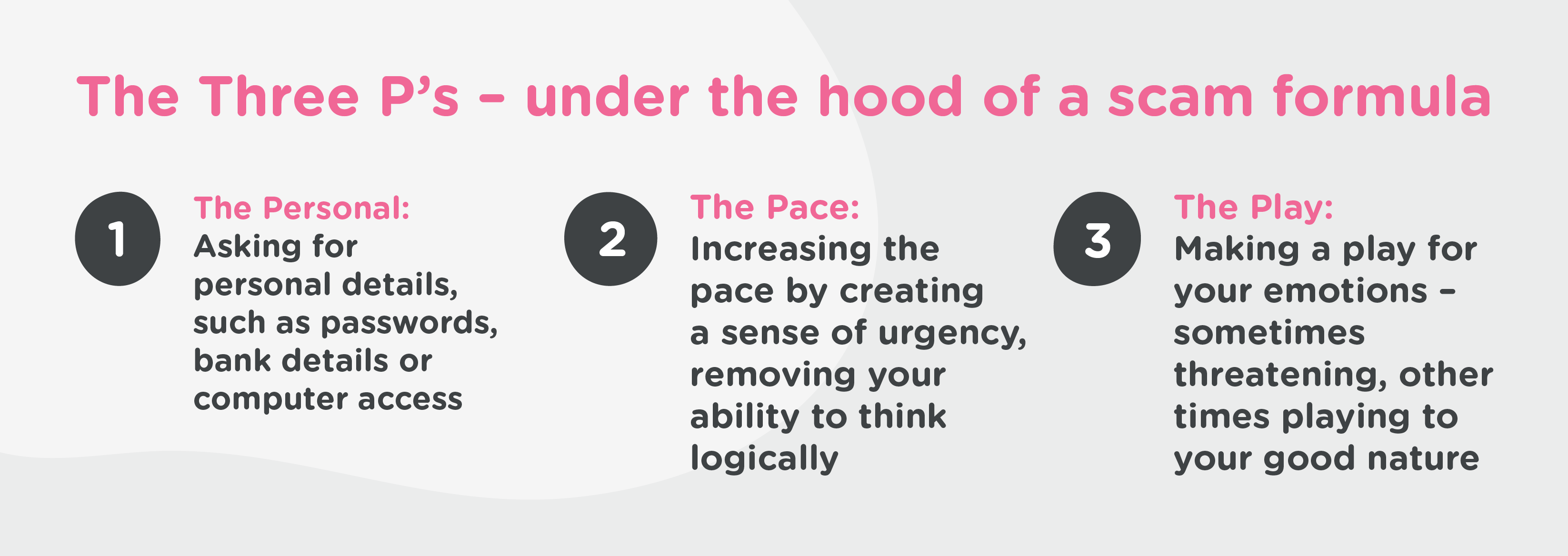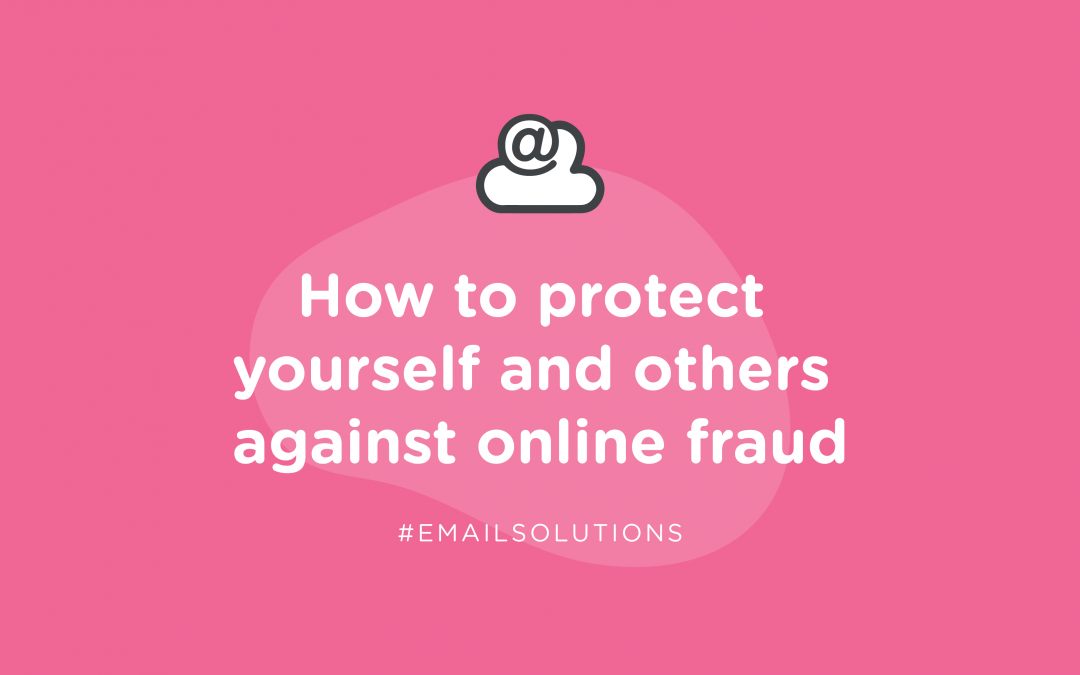Penrith is no longer your remote, rural and safe town – in fact, we’re falling prey to a sophisticated scamming racket as we speak
We all get those phone calls where we’re being sold to, promised a pot of gold at the end of the rainbow or – worse – abused and threatened.
Scammers are everywhere, all the time. But last week they were more than just annoying; they were destructive. They were abusive, manipulative, and intimidating. And their victim was a close, 80-year-old family friend.
There’s nothing I can do to get her $10,000 back. But what I can do is highlight what to look out for to prevent it happening to you. Because while this sophisticated scamming racket is prevalent in Penrith today, it may be in your parent’s or grandparent’s suburb tomorrow.
First of all – what defines a scam?
A scam is a form of deception. Scammers trick their victims to get access to money or other goods from an unsuspecting person.
Scamming has undergone quite the evolution over the years. It didn’t seem like that long ago that it was about writing bad cheques. Today, particularly due to technology and the digital marketplace, scams (and scammers) are far more advanced. Look at phishing, for example – once your basic fake email scam in the 90’s, it’s now responsible for sophisticated, large-scale cyberattacks.
More worryingly, scams are well-planned and executed. They have dedicated phone lines and custom call centres set up to imitate large corporations, giving us the illusion of reality. If you don’t know what to look out for, it can be near impossible to know exactly who you’re talking to.
Why types of scams are out there?
There are more types of scams than we can count. Some of the most common are:
- ATO and tax scams: Scammers impersonate ATO or MyGov staff, or Registered Tax Agents, to obtain our personal information around tax time.
- Identity scams: Similar to above, scammers use documentation with your personal details to obtain control of your identity and obtain access to personal affects.
- Online romance scams: Following an initial meeting on a legit dating website, scammers gradually move us into an external space that isn’t monitored (and where we’re more easily manipulated), such as email.
- Fake charity scams: That knock on the door is generally from a legit charity, but it’s so very hard to confirm when they’ve set up a fake website.
- Shopping scams: Fake online websites that look like the real deal accept your purchase but never provide the goods.
- Technical support scams: Contacting vulnerable users via the phone, scammers gain remote access before using it to steal information and money.
- Reward scams: They used to be about your unexpected inheritance – now reward scams promise a large amount of money in return for a small up-front payment.
- Threatening scams: Similar to the ATO and tax scams, these are impersonation scams. Scammers appear to be from a large and legitimate corporation, or a government department, and can convince you to hand over private information or threaten for funds to clear a debt.
How a family friend fell victim to a shocking remote access scam
This friend is the most wonderful woman. She’s 80-years of age, has a family who love her dearly, and the most beautiful nature. Unfortunately, these scammers preyed on that nature.
On receipt of an email (supposedly) by a well-known global organisation, she was horrified to find out that they would be deducting $99 from her account for monies owing. She immediately called the number on the email to clarify that she didn’t have an account with them. But they simply follow their script. She became trapped in their web.
Not only did they talk her into remote controlling her computer, but also moved between using fear (via abuse and telling her she’d pressed an incorrect button and $10,000 had incorrectly gone into her account) and appealing to her good nature (with the scammer crying that he would get into trouble and lose his job). He also pressured her with time – the money couldn’t be transferred back into the account because of tax purposes, he explained, and so she was forced to quickly withdraw it from her bank account before anyone found out.
What’s most terrifying is that they came to her home, via an Uber, to pick it up. He stood at her front door, right in the heart of Penrith, and took the cash.
It was – and is – terrifying.
How my friend will avoid falling prey to a scammer next time – and what you need to do
Picking up the red flags is critical. If you suspect something, you’re probably right.
- Ignore the emails. Yes, it’s terrifying to receive an unsolicited email saying, ‘We’re taking $99 from your account as you owe us’ – but that’s called the hook. If you avoid the hook, you can avoid getting caught. Instead, hit the ‘delete’ button or, if you’re really unsure, file them in a ‘Suspicious’ folder for a trusted family member or friend to investigate.
- Don’t call the number on the email to question or dispute. These emails are advanced and look like exact replicas of genuine banking (and other) emails. But if you call the number on the email, you’re directed straight to their in-house call centre – set up purely to run these scams. And from here, they can only hook you in more forcefully.
- Check the email address. Hovering your mouse over the name of the organisation the email appears to be sent from will provide the full email address. This name can often be an indicator that it’s not from a genuine source.
- Do not allow remote access. Irrespective of the abuse or risk, never provide remote access privileges to a stranger. In my elderly friend’s case, her computer had to be wiped clean to prevent further tampering via the software they’d installed (and to be super-diligent, they even deleted all traces of their email communications to eliminate proof).No-one can gain remote access without your permission – if you don’t trust them with your bank details, don’t trust them with your computer access.
- Ask for help and advice. Ignore all potential emails and phone calls until you talk to someone. If you don’t have access to a friend of family member, call a respected IT consultant. You can contact me online or call directly if you’re in this situation.
Scammers always have a plan – and it usually follows a formula
Scammers evolve their hook as technology and society change. But while they’re constantly reinventing the scam itself, they rarely reinvent their formula.
Keep on the lookout for what I call ‘The Three Ps of Scamming’ – Personal, Pace, and Play.
The Personal: If the hairs on the back of your neck don’t stand on end when you’re asked for personal details, they should. Never give out information such as passwords or bank details. And unless they’re part of your trusted network, this includes access to your computer. Scammers try to get your personal details.
The Pace: Scammers will up the pace by creating a sense of urgency. This is a common tactic – giving you limited time to act is designed to isolate you. It not only prevents you from asking anyone for advice or help, but also forces you to act in the moment. Scammers increase the pace to get you off-balance.
The Play: Depending on who you are and what they’re after, the play will be different. Scammers consistently make a play for your emotions – sometimes they’re threatening, while other times they play to your good nature (as they did with my friend, by pretending that they were going to get in trouble from their employer and lose their job unless she helped him). Scammers play to your fears and your feelings.

If you go back to my elderly friend’s situation, you’ll see how they’ve used The Three P’s of Scamming in a coordinated effort to gain access, create a sense of urgency, and play to her good nature:
She provided remote computer access, giving them the Personal.
She was unable to obtain advice or help, as they had set a clear Pace via urgency.
And she followed their instructions following their Play for her emotions.
It was a ruthless and heartless act, but unfortunately a common one. If you know someone who has been scammed, or you yourself know how disempowering and invasive it is, please share The Three P’s of Scamming with those you love and/or all over your socials. Because while the elderly are preyed on so heavily, the unfortunate reality is that we’re all at risk.
And even a little awareness provides more protection than none.
Have you (or someone you know) been impacted by scammers?
Fingers crossed you haven’t – but if you have, please share your experience. Otherwise, what are your thoughts? I’d love to know.


Fantastic article! We need more education around the dangers of scammers – people are falling victim WAY too easily. Thanks for sharing your experience.
Nearly the exact same thing happened to my friend in Penrith and they made him deposit it into there acc at another bank $10000 cash